Rumor has it Microsoft wanted to buy Bungie and the Destiny IP, but Bungie CEO Pete Parsons says it was false. The rumor actually didn't make sense from the get-go, and here's why.
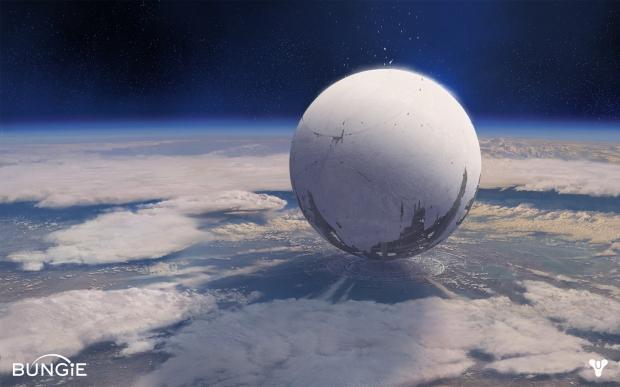
Bungie isn't going to sell itself and the Destiny franchise over to Microsoft. There's many reasons for this, but the biggest one is that it simply doesn't need to. Bungie is doing great right now, and like literally every other "Microsoft is buying x company" rumor we've dispelled, it has no reason to sell. And it has especially no reason to sell to Microsoft.
First, let's do a quick history lesson.
Bungie has no reason to sell
Bungie has an old relationship with Microsoft. They split from Microsoft in 2007 and became independent, and made Halo games until 2010's Halo Reach. After years of Halo, Bungie wanted to make something new. They started planning Destiny, but needed funding, so they signed a 10-year deal with Activision. Bungie stayed independent but had to adhere to Activision's guidance--which Bungie says enabled them to do "awesome things."
Activision wasn't the only company that believed in Bungie. In 2018, Chinese juggernaut NetEase, who made $2 billion last quarter, invested a massive $100 million in Bungie to fund the developer's "bold new vision."
This bold vision is ambitious: Bungie aspires to not only own its IPs, but to publish them too. Bungie has morphed into a developer-publisher.
Eventually, Activision wasn't happy with Destiny's monetization/earnings structure. So they sold the Destiny franchise back to Bungie in 2019. Activision made $164 million in GAAP revenue from the deal. Bungie now owns publishing and IP rights to the Destiny series.
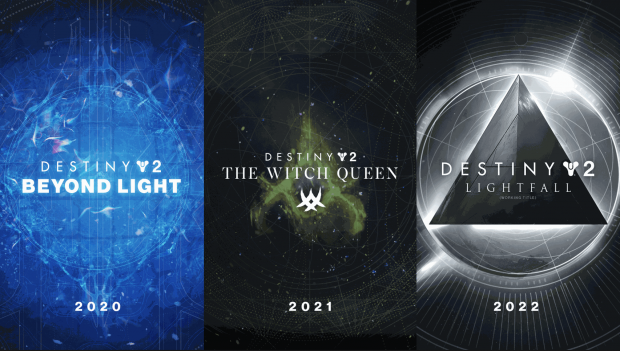
With this newfound independence and investment from one of the most powerful and sustainable mobile-based games companies in the industry, Bungie laid out a roadmap for the future of Destiny. This started with 2019's Shadowkeep expansion.
Destiny 3 is cancelled. The future of the IP is through Destiny 2. Bungie has laid out new Destiny 2 content to carry through 2022.
Bungie is also making a brand new self-published and self-owned IP with live service elements and RPG aspects. That game is due out by 2025.
Bungie wouldn't go through all of this just to sell out to Microsoft. Not unless it was really, really hurting.
That's typically when acquisitions are made. Indie devs sell themselves when they're struggling, now when they've laid out a multi-year roadmap they're just starting to execute on.
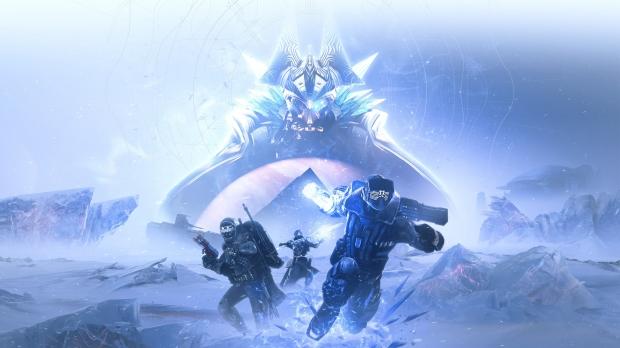
Right now Destiny isn't in bad shape. The game is now free-to-play across all platforms, and is coming to Xbox Game Pass this month. At the time of writing, Destiny 2 has over 72,000 players on Steam.
Destiny 2's new Beyond Light expansion is due out at the launch of next-gen Xbox Series X and PlayStation 5 consoles, complete with upgraded enhancements.
Everything is going good for Bungie and the Destiny franchise, and right now, Bungie has no reason to sell.
Now let's take a look at the flip side of the argument.
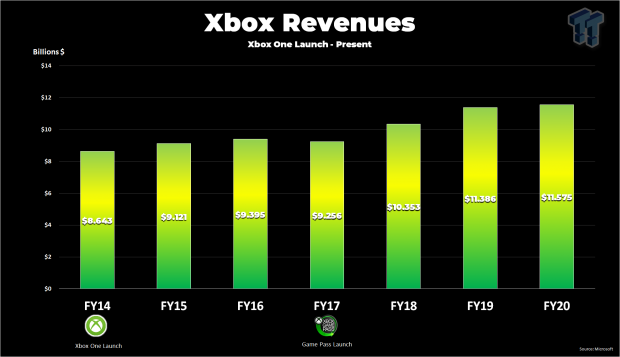
Microsoft has no reason to buy
Microsoft has no reason to spend big bucks to buy Destiny. We've talked in length about how Microsoft doesn't care that much about the Xbox brand, and how, outside of its $2.5 billion acquisition of Minecraft in 2014, Microsoft hasn't spent big to buy new studios.
Yes, it did go on a buyup spree recently to fill out its global game studios, but that was smaller AA studios like Obsidian, inXile, and Ninja Theory. Not huge heavy-hitters like Bungie.
Now isn't the right time for a big AAA acquisition, and the Xbox segment would have a hard time justifying buying someone as expensive as Bungie--if, of course, they were willing to sell in the first place (they're not).
- Xbox routinely makes up ~10% of Microsoft's revenues. It's not extremely important, but more of a consistent earner for MS.
- Microsoft is spending big on Xbox Series S and Series X consoles, both of which will be sold at a loss. These systems use expensive 7nm+ SoCs that are complicated and costly to make.
Now isn't the right time to buy a AAA studio that wholly-owns both the IP rights and publishing rights to a series.
Yes, Microsoft could theoretically buy Bungie for an astronomical asking price. They have the money. But that doesn't mean they will. Xbox isn't that important to Microsoft unless, of course, it's a game like Minecraft which has become the best-selling title of all time and routinely monetizes strongly every year.
Destiny doesn't have that kind of power.
Also let's consider the Halo franchise.
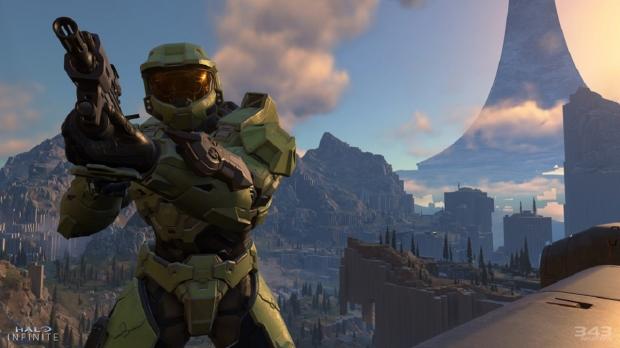
Why would Microsoft buy Destiny when it's basically trying to make Halo into a Destiny-like experience? Halo: Infinite will be a live game with free-to-play multiplayer and distinct re-playable PVE elements.
Infinite is, for all intents and purposes, Halo morphed into Destiny.
It's basically an RPG-FPS hybrid with missions, upgrade paths, and the important online-driven co-op that fosters engagement. Infinite was made to emulate live games like Destiny and meant specifically to feed Xbox Game Pass, which is the real heart of the Xbox brand.
Infinite isn't just a Halo game, but a platform for the future of the Halo franchise. It's just like how Destiny 2 isn't a game, but a platform for the future of the Destiny series.
Also, Microsoft has no need to buy Destiny or Bungie. Why buy when you can simply partner with the company and still make money without spending much?
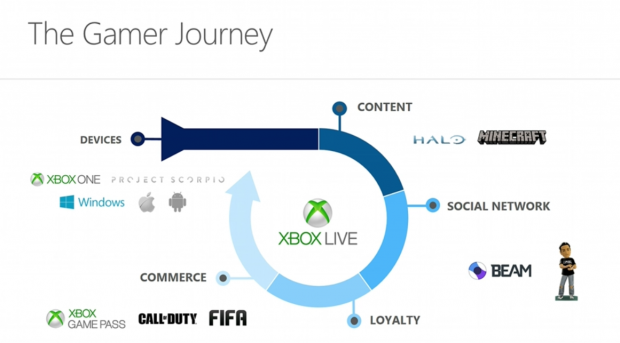
Destiny 2 is coming to Xbox Game Pass. This is huge for Microsoft and Bungie. Destiny 2's arrival on the service adds tremendous value, which should lead to more subscription sign-ups and higher retention.
Game Pass also leads to full game sales. It's a phenomenon we call the Game Pass Effect, and consumers are likely to not only subscribe to Game Pass, but buy more copies of Destiny 2's Beyond Light expansion (and the other expacs) as a result of its inclusion on Game Pass.
Destiny 2 is also monetized with microtransactions. This is a big one for Microsoft, who loves monetization (as shown by the mTX in its first-party games and devotion to services).
Why buy Destiny when you can just keep 30% of all game sales and microtransaction revenues made from the game? Destiny 2 is just another high-profile game on Game Pass that Microsoft doesn't have to make tremendous investments to acquire. It's another cog in the billion-dollar machine.
Yes, buying Destiny and Bungie would be immediately accretive to Microsoft's Xbox business. Destiny is a huge webwork of live-driven engagement and ties perfectly with Xbox's service-first ethos.
But this would be extremely costly to Microsoft, a company who sees Xbox as ancillary but synergistic with its service-based empire. And, of course, it's all predicated on Bungie being willing to sell (which it's not).


